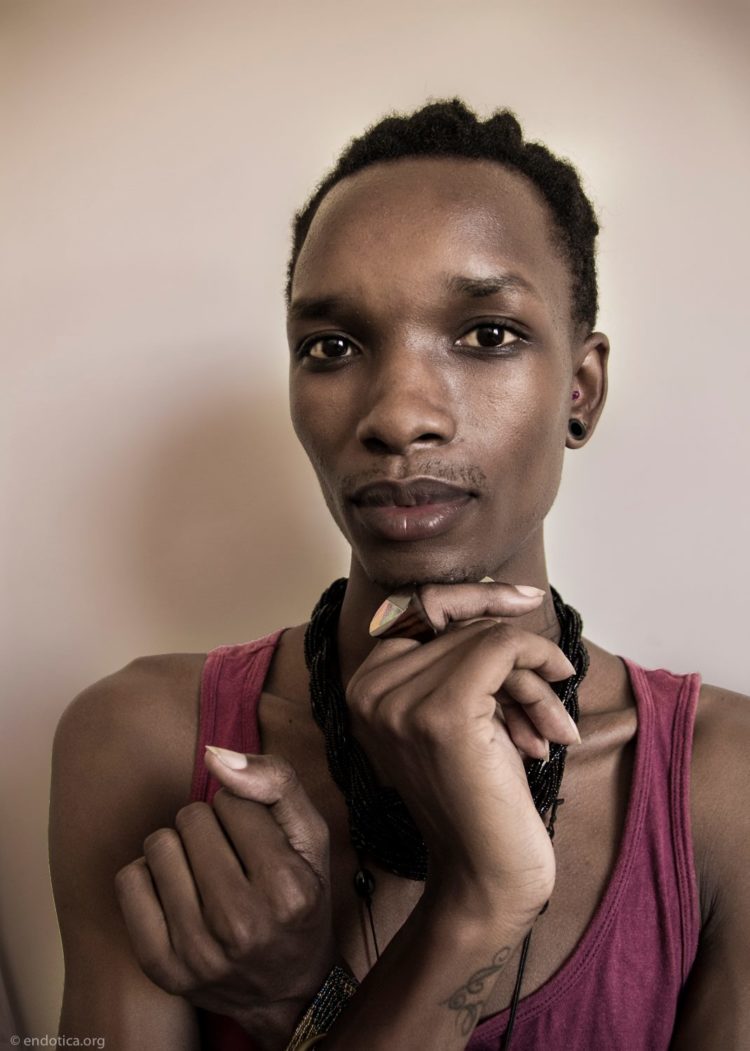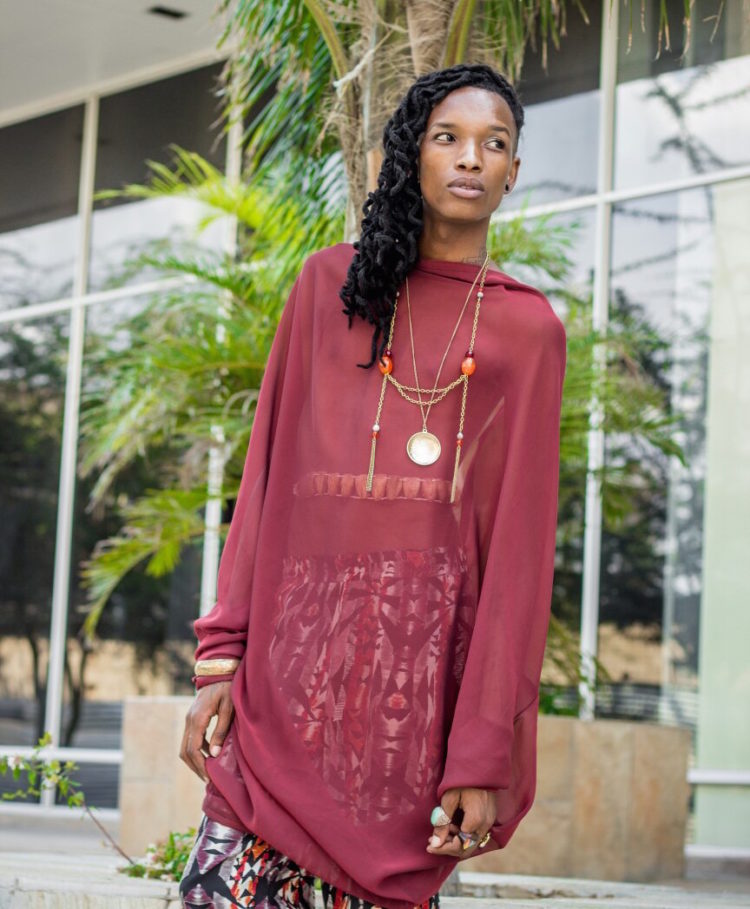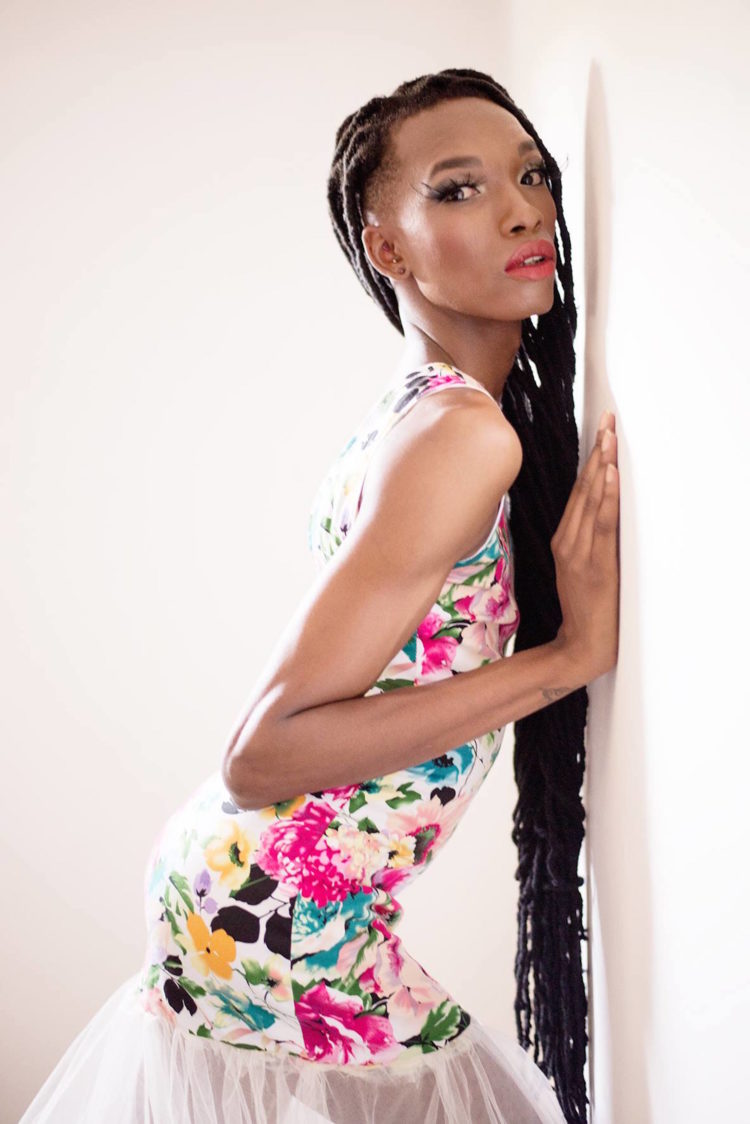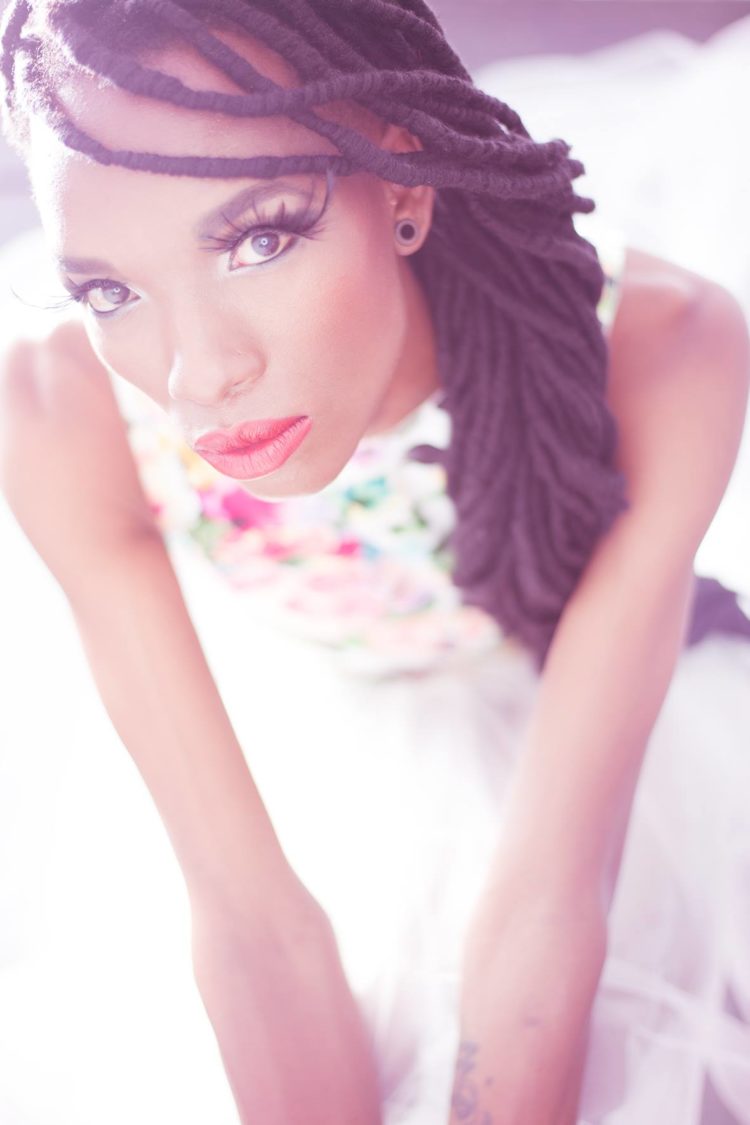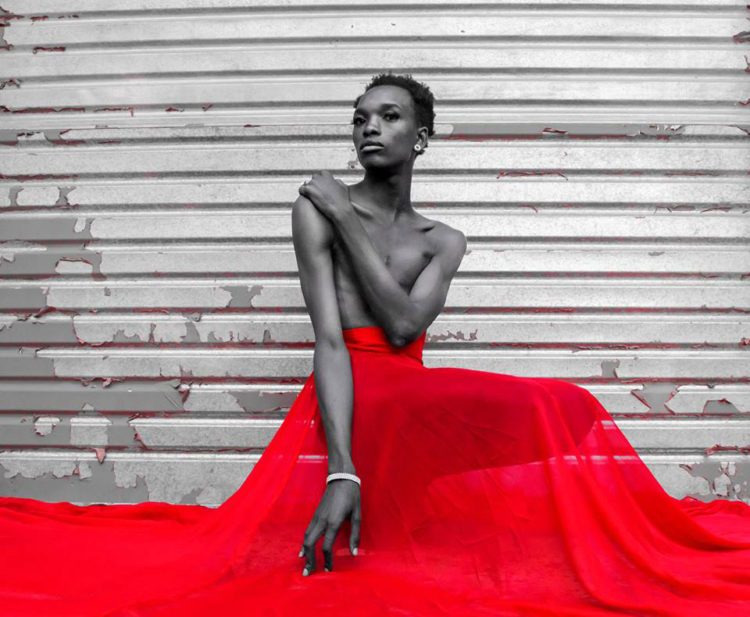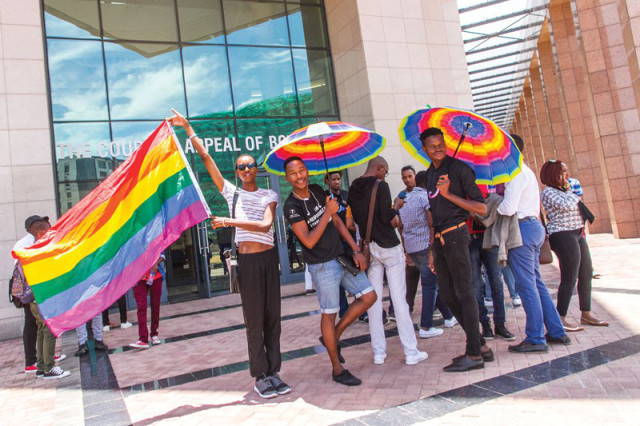In the first part of this series, Katlego wrote about what it felt like to start to become ‘Botswana’s first openly Trans* identifying public figure’. In this second part, she tells us more about her journey.
There was a massive adult circumcision drive in Botswana in 2012 which got me thinking about the value of a penis. I was 24. It was the year before my privacy went public. The year before newspapers and my professional bio listed trans* alongside my name.
By then I had survived numerous psychological melt-downs. I had kissed a few boys and a few girls; I had cried in the rain; I had cheered at rugby matches; I had also pole danced in a cage with my headmaster. Even with all these life experiences, until that year I’d never thought that much about penises – nor had I stopped thinking about boobs. But let’s not get ahead of ourselves.
I began feeling the weight of the silent restrictions placed upon me and my body.
In part 1 of this two-part series, I relayed some of the experiences which peppered my childhood as a trans* person in the 90s in Francistown, Botswana. These include growing up with my Janet Jackson’s music, rolling with the coolest lesbian in town, and my confusion with having to know when I knew I was trans*. At the age of 16 I thought I’d had an eventful life, but it had all been a dress rehearsal for my becoming a ‘Black Woman of Complications’.
When I was 13, I managed to form a crew in my school with four wonderful young women and we were popularly known as the ‘Fab 5’ – we even had our own block of lockers where we’d have visitors pop by to say hello. However, unlike me, they were able to speak openly about their crushes. Unlike me, they could wear their hair long or short, and not feel threatened when someone realised that they were wearing eyeliner to school – because make up was not allowed but some girls wore it in anyway.
I began feeling the weight of the silent restrictions placed upon me and my body. While my shield of excellence was still holding up, my teenage brain was struggling with a self-imposed state of being a eunuch – living vicariously through my peers’ relationships and experiences. Everyone’s straight in high school – right? Besides, there wasn’t any mood the ballads of the 2000s – like Usher’s U Got It Bad and 3 Doors Down’s Here Without You – or albums like Janet Jackson’s All For You and Damita Jo couldn’t cure.
I was finally free, yet still felt trapped behind the impositions of male privilege.
Now, while many people wish they could reinvent themselves and get a fresh start, I actually got to do it. When I was 18, I went to a coastal boarding school in Durban, South Africa. New country, new name, and I made new friends who didn’t mind me painting my nails, or getting a tongue ring, or wearing fluffy pink Aristocats slippers to breakfast, or dancing on tables in the library. I was finally free, yet still felt trapped behind the impositions of male privilege.
Since the age of eight, I had refuted being gay, but still I didn’t have the word to call what I was. So when rumours spread that I was dating my friend (the only openly gay person in my new school) I realised that no matter where I was, my gender performance wasn’t ever going to be divorced from my perceived sexuality and my body – not easily anyway. People always wanted answers to questions they never showed me the respect of asking; I couldn’t just explore my being without them understanding what I was doing.
https://www.instagram.com/p/BOct0zogpAU/?taken-by=lupitanyongo&hl=en
Years before Lupita became an Oscar winner, most of the brown-skinned examples of femininity, womanhood and talent that I saw were bodies with voluptuous breasts. But still people looked beyond the flatness of my chest. On Prom night – I didn’t go to the actual dinner so I could ’allow the girls to shine’ – I got my first taste of the dubious business of being found attractive. A girl in my class had landed a college guy as her date, so he came over to the boy’s dormitory – where I stayed – to get ready and I played host in between rushing off to do the girls’ make up (thus boosting their shine).
Later that night at the after party, it appeared my hospitality had put ideas in college boy’s mind.He was flirting with me, taking me on the dance floor and borderline ignoring his date. While the thrill of this exhibition had Don’t Cha playing in my head, I didn’t let my judgement get clouded – my mother hadn’t raised a man stealer. However, this singular moment became the premise for how I’d negotiate people in my life.
Over the many years, while my dysphoria – a dissociative psychological condition where your lived experience and identity are incompatible – buckled down for war, I’d been trying to learn and navigate who I was as I saw myself… and who I could be as seen by the world.
In university, I was assigned to a single-sex residence called Men’s Res – making me a ‘Raider’. It was stereotypical college fraternity machismo – be loud, occupy every space, get the girls, drink, don’t be queer, and repeat. During orientation week, we’d be woken up in the middle of the night by our seniors to go sing (more like yell) love songs outside our sister residence to woo the girls. On top of this, we’d be randomly woken up for exercise.
Again, I used my athleticism to beat the endurance tests we were subjected to – all in the belief that this would outweigh my unnamed difference. During the mock courtships, I kept telling myself I had a simple choice to make: grin and bear it and fit in, or stand out like a glittering flame. I chose neither. I still didn’t know which side of that sing-off on the front lawn I belonged, if any at all.
We are habitually rendered invisible medically as well as socially.
For about three years of my university life my mind ached from the self-deprecation that I used to offset and pre-empt being bullied or abused by some wayward Raiders – as brutish as they may have been, we were bonded by the house we belonged to.
And while I always carried my cloak of maleness, I also took to it with scissors and knives and feathers and jewels as I waged a war against myself to always be my best self; to live up to the motto I’d been raised with at Clifton: ‘Endure with Courage.’ And endure I did – Janet had returned to acting so, while I could jam to her new sex-positive number Feedback, I was returning to her older music and superimposing new meanings on old memories.
Much like my drag debut at the age of 12, when I was 23 a good friend of mine invited me to make a guest appearance in an immersive theatre performance. I had free reign over my contribution. I chose to play the role of a seductress with the audience taking shifts to join me in my boudoir.
I performed in a faded dust pink, early 1900s style, corset bustier with black tassel trimmings. It was a size too small – as any good period corset should be. I stuffed two silk handkerchiefs into the pre-shaped bust, which I coyly used as obviously fake breasts as well as teasing aides. My character understood that being a woman and breasts are not mutually exclusive – a lesson I’ve now, in my post-Lupita days, honed in on and stew in every once in a while as I contemplate a life with or without chest mounds (it’s a bit late for grass brooms now).
However, as tough as getting into that corset was, it also demanded a masterful tuck. It’s not easy pulling off sexiness while wondering if your gait’s too wide and you might induce a ball slip. My unnamed character was flashes of what I knew I was and hoped I could be, but not reduced to – a tender but strong, lust-inciting, sharp-tongued, magnetic beauty.
So let’s jump forward to 2012 and the penis-related health awareness drive. While it was really about promoting circumcision to reduce the risk of HIV infection and cervical cancer – at no point in this national conversation were queer bodies mentioned. No surprise, we are habitually rendered invisible medically as well as socially. I’d hear men publically arguing against mutilating their perfectly functional genitalia, inadvertently rousing nervous, comical deflections by those who didn’t want to be perceived as uncircumcised (and therefore dirty).
I’d hear women declare that they’d never sleep with a man whose member was still ‘wearing a cap’ (to make a direct translation from Setswana). All this fuss, over a piece of skin wrapped tissue which in my experience – unless tucked or removed – doesn’t do much more than obstruct the silhouette of a skin-tight dress, or cause awkward moments in high school.
I began to seriously wonder if not sharing the narrative of mutilating myself in the bath tub as a young child, or having stories of never wanting to see it, meant that I wasn’t fit to sit under the canopy of trans* which I’d already personally started to try locate on my body. Having inhabited my body for a quarter of a century, I was challenged to interrogate my allegiances to both my publicly gendered and sexualised physical self, and balance my eunuch state of self performance with caged desire.
I understand that it both is and is not my duty to deconstruct and then reconstruct my government’s views on the validity of citizens like me whom colonial constitutions factored out and vilified.
Could I simultaneously make peace with being breastless and not needing to ‘mutilate’ this body by chopping bits off? Would I be allowed to be this dynamic, or did I need permission at all? Was I just complicating things for myself and expecting too much of the world I’d negotiated for too long? What would publicly private Janet do? The woman had begun to carve herself out.
What being a ‘Black Woman of Complications’ means to me is that I understand all the skins and tags and scars and words and sites and histories that I essentially represent on a daily basis. I understand that on the same day, in the same hour, I can enjoy my friend’s child proudly hollering: ‘Hi, Aunty Kat!’ from the playground, surrounded by their peers, yet also have a random woman snigger: ‘There’s a guy in the ladies’ toilets!’ I understand that it both is and is not my duty to deconstruct and then reconstruct my government’s views on the validity of citizens like me whom colonial constitutions factored out and vilified.
I believe we all need to know that we don’t always have to know what we are becoming.
While the over-sexualisation of my brown-skinned body becomes the stake I am tied to, and the difficulty of reconciling my multifaceted expression with my chosen faith render me the plaything of others, turning my bones into the rungs on a ladder they call salvation, I have done nothing to deserve it. This is not my birthright. It was not for these things that the rains broke the riverbanks on that Wednesday in January of 1988.
I wouldn’t fault anyone for asking if I would take anything back if I could – I’ve wondered about it many times over. Would I have it easier now if I hadn’t taken my private matters into the public space for negotiation and debate all those years ago? I don’t think so. From the eight-year-old child who had to refute a word they barely understood, to the teenager suffering in silence, to the twenty-something year old who is still trying to navigate being confident and discovering herself, my story is unique but nothing too special.
I’ve made it this far, and I will continue to live my life openly and brilliantly because I believe we all need to know that we don’t always have to know what we are becoming. There is no easy way to be me, or even like me. I’m necessarily, a Black Woman of Complications; but I know that I am not alone on this journey.

